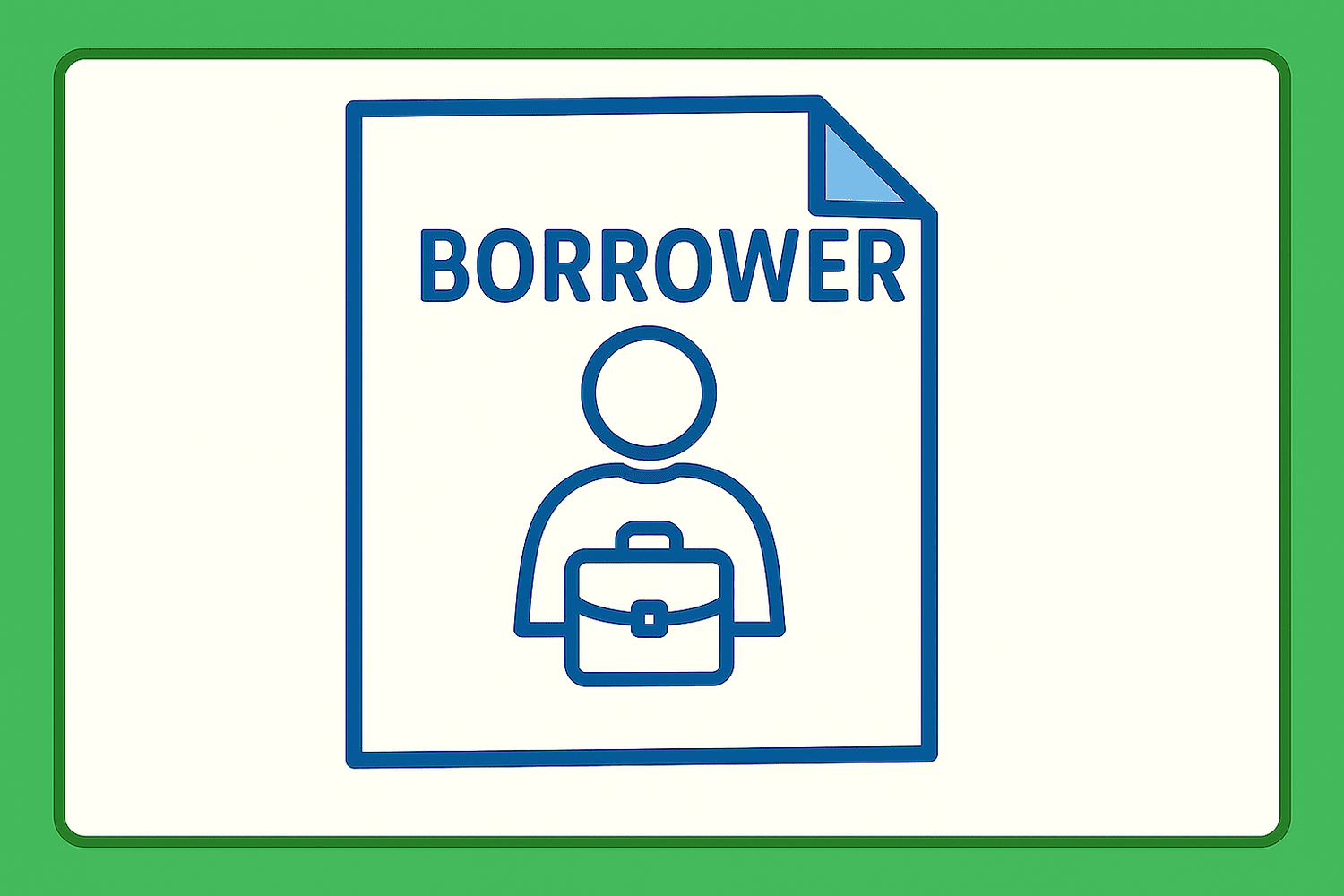
Borrower Explained
If you’ve ever taken out a loan, signed a credit agreement, or financed a purchase, you were acting as a borrower. But what exactly does that mean? And what are your rights and responsibilities when you borrow money?
In this guide, we’ll explain what a borrower is, how borrowing works, and what you need to know before taking on any kind of debt, from personal loans to credit cards and everything in between.
Key Takeaways
- A borrower is the party who receives a loan and agrees to repay it under defined terms.
- Borrowers have rights and responsibilities, including repayment, disclosure, and communication.
- Knowing the difference between borrower, co-borrower, and cosigner can help avoid future misunderstandings.
- At Simple Fast Loans, we support responsible borrowing through fair terms and clear guidance.
What Is a Borrower?
A borrower is an individual or entity who receives money from a lender with the obligation to repay the funds over time, typically with interest and according to specific terms.
When you borrow money, you're entering into a legal agreement to:
- Use the funds for a stated purpose
- Repay them on time
- Pay any interest and fees that apply
Whether you're applying for a payday loan, mortgage, or student loan, if you're on the receiving end of the funds, you’re the borrower.
Borrower Responsibilities
Being a borrower comes with several key responsibilities:
|
Responsibility |
Why It Matters |
|
Repay the loan as agreed |
Avoids late fees, default, and damage to your credit |
|
Understand the terms before signing |
Prevents surprises with interest rates or penalties |
|
Make payments on time |
Builds positive credit history and financial trust |
|
Communicate with your lender |
Helps avoid defaults and may lead to revised terms |
|
Keep financial records |
Helps with budgeting and tax reporting |
Borrower Rights
Borrowers are protected by federal and state laws. As a borrower, you have the right to:
- Clear, upfront disclosure of all loan terms (under the Truth in Lending Act)
- Know the APR, fees, repayment schedule, and total cost of the loan
- Refuse a loan offer if you don’t agree to the terms
- Request written copies of loan agreements
- Be free from discriminatory lending practices
At Simple Fast Loans, we’re committed to transparency and ethical lending that empowers borrowers, not confuses them.
Types of Borrowers
|
Borrower Type |
Description |
|
Individual Borrower |
A person who borrows money for personal needs (e.g., medical, auto, home repair) |
|
Joint Borrowers |
Two or more people who share equal responsibility for the loan (e.g., spouses) |
|
Business Borrower |
A company borrowing for operations, equipment, or expansion |
|
Student Borrower |
A person borrowing for educational expenses, typically through federal or private loans |
Borrower vs. Co-Borrower vs. Cosigner
It’s important to understand the different roles in a loan agreement:
|
Role |
Obligation to Repay |
Share Ownership? |
Appears on Loan Docs |
|
Borrower |
Yes |
Yes (if applicable) |
Yes |
|
Co-Borrower |
Yes (equal responsibility) |
Yes |
Yes |
|
Cosigner |
Yes (only if the borrower defaults) |
No |
Yes |
A co-borrower is equally responsible for the loan and typically shares ownership (e.g., a spouse on a car loan). A cosigner only steps in if the main borrower fails to pay.
What Happens If a Borrower Defaults?
Defaulting means failing to repay the loan under the agreed terms. Consequences may include:
- Late fees and penalties
- Damage to your credit score
- Legal action by the lender
- Wage garnishment (in some states)
- Repossession (for secured loans)
If you can’t make payments, it’s crucial to contact your lender early. At Simple Fast Loans, we encourage proactive communication and may be able to offer alternative solutions.
Tips for Being a Responsible Borrower
- Borrow only what you need.
- Read the fine print—know your APR, repayment period, and total cost.
- Set up auto-payments to avoid missing due dates.
- Check your credit report before applying.
- Use loans strategically—for emergencies, consolidation, or essential expenses.
At Simple Fast Loans, we believe borrowing should be simple, transparent, and helpful, not confusing or risky. We provide clear terms, no hidden fees, and fast access to personal loans designed for real-life needs.
Whether you’re a first-time borrower or looking for a better lending experience, our team is here to help.